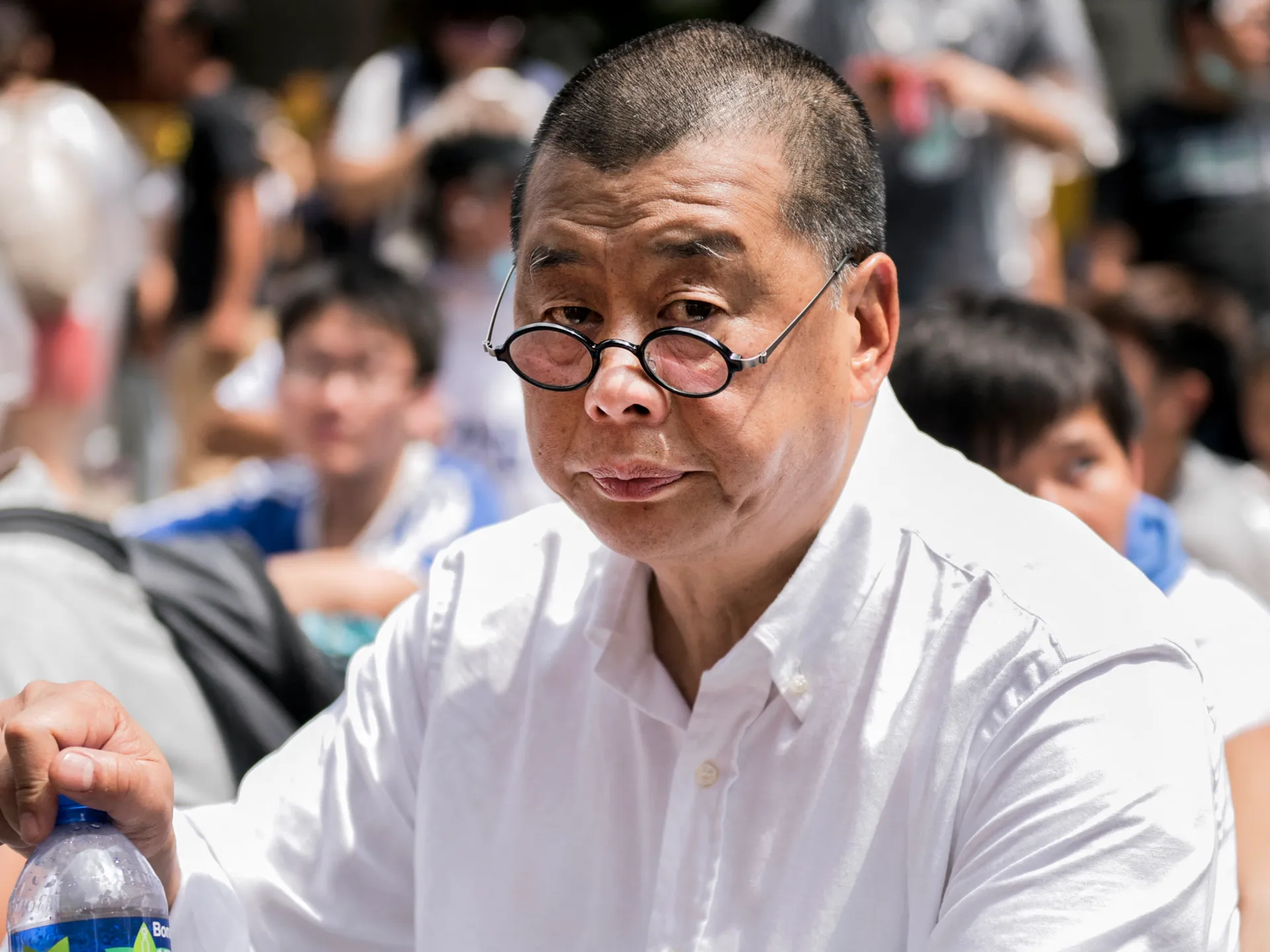Hong Kong appeals court overturns Jimmy Lai’s fraud conviction | Freedom of the Press News
Surprise ruling comes weeks after the media mogul was convicted and jailed for 20 years on national security charges.
Published On 26 Feb 2026
A Hong Kong appellate court has overturned a fraud conviction against pro-democracy media tycoon Jimmy Lai in a surprise ruling weeks after his jailing for 20 years on a separate national security charge.
The ruling by the Court of First Instance on Thursday said that it allowed the appeal from Lai and another defendant in the case to proceed as a lower court judge had “erred”.
Recommended Stories
list of 4 itemsend of list
“[We] allow the appeals, quash the convictions and set aside the sentences,” the judges wrote.
The conviction that was overturned was from an earlier fraud case in which prosecutors alleged that a consultancy firm operated by Lai, 78, for his personal use had taken up office space that his now defunct media business – Apple Daily – rented for publication and printing purposes.
This was in breach of the terms of the lease Apple Daily signed with a government company and amounted to fraud, prosecutors said.
Lai had been sentenced to five years and nine months in prison in 2022 on the two fraud charges.
Former Apple Daily executive Wong Wai-keung was also charged in the same case and jailed for 21 months.
Judges at the Court of Appeal wrote in their judgement that while Apple Daily Printing had breached the lease terms by allowing the firm to use part of the space, it didn’t owe a duty to disclose its breach. They said even if it had owed and breached that duty, the same could not be attributed to Lai and Wong as a matter of law.
The trial judges’ “reasoning in concluding that the applicants were liable for the concealment as the prosecution contended is unsupportable”, they said.
Neither defendant appeared in court.
The ruling would slightly reduce Lai’s total prison time. The judges handling Lai’s national security case allowed the two sentences to be served concurrently for only two years, with the other 18 years to be added after the fraud sentence.
The lengthy sentence – over two counts of conspiracy to collude with foreign forces and one for publishing seditious materials – has raised concerns that he could spend the rest of his life in prison.
Lai’s children have expressed hopes that a visit by United States President Donald Trump to Beijing could help secure the release of their father, a British citizen. The White House has confirmed that Trump will travel to China on March 31 through April 2 to meet Chinese leader Xi Jinping.
United Kingdom Foreign Secretary Yvette Cooper has said Lai was sentenced for exercising his right to freedom of expression and called on the Hong Kong authorities to release him on humanitarian grounds.
Chinese and Hong Kong authorities have defended Lai’s sentencing in the national security case, saying it reflected the spirit of the rule of law. They also insisted the security law is necessary for the city’s stability.
In a separate ruling on Thursday, a Hong Kong court sentenced the father of a wanted pro-democracy activist to eight months in prison under the city’s national security law for attempting to withdraw funds belonging to an “absconder”.
Kwok Yin-sang, 69, was found guilty on February 11 for “attempting to deal with, directly or indirectly, any funds or other financial assets or economic resources” after he tried to terminate his daughter Anna Kwok’s insurance policy and withdraw the funds.
He is the first person in the city to be charged and convicted of the offence.
He had pleaded not guilty and did not testify at the trial.
